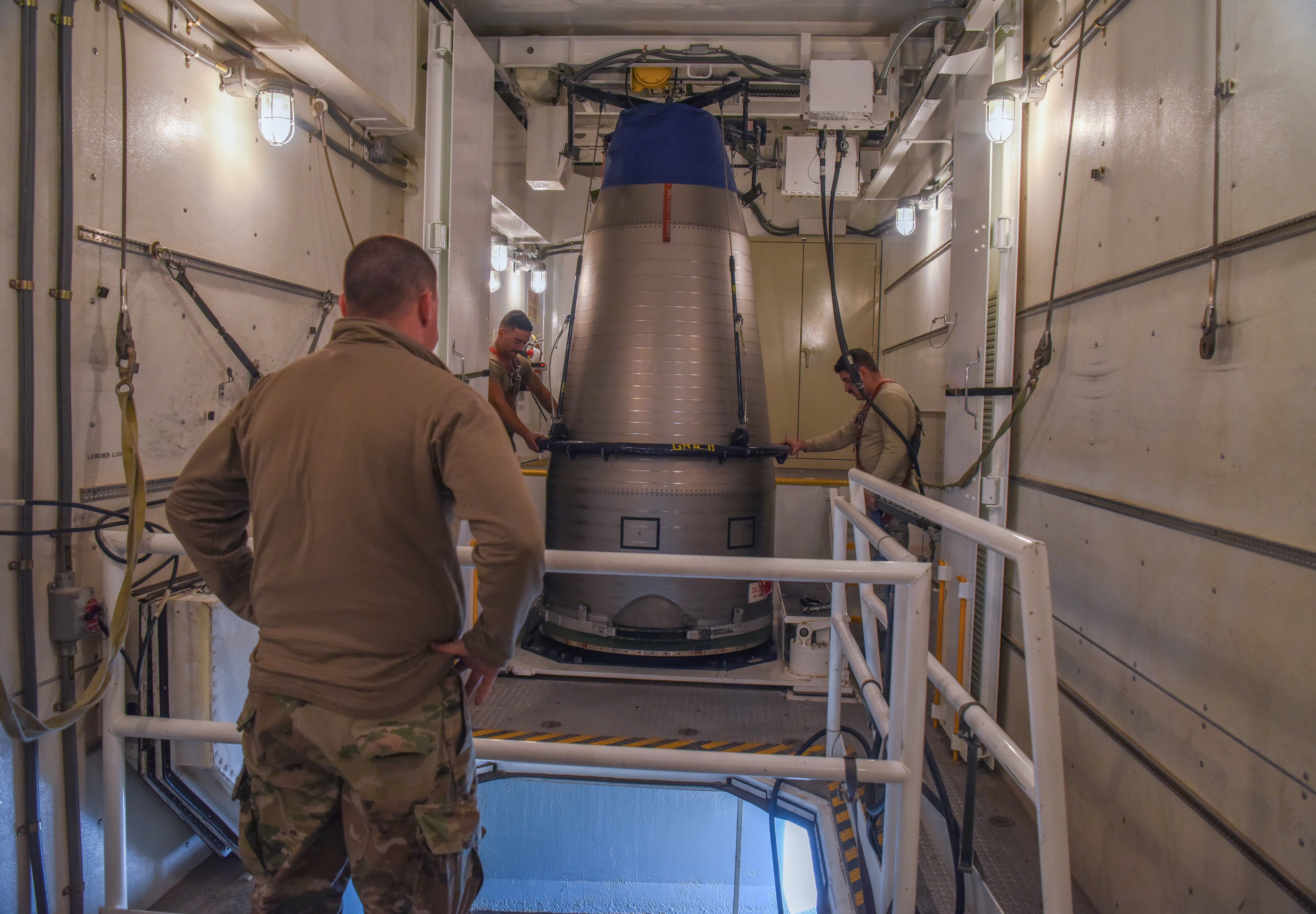WASHINGTON ― Congress would get a window into pleas from allies to the Biden administration not to change policy on the use of nuclear weapons under language in the new compromise defense policy bill.
The National Defense Authorization Act provision follows calls for transparency from key Republicans who don’t want to see Biden declare that the U.S. will not use nuclear weapons for a first strike and only use them to deter or retaliate against a nuclear attack.
Under the language, the Pentagon would have to brief Congress on consultations with allies regarding the administration’s nuclear posture review, the likeliest vehicle for such a policy change. The briefing would have to happen before the review is published, early next year.
The top Republicans on the House Foreign Affairs Committee, Rep. Michael McCaul, and House Armed Services Committee, Rep. Mike Rogers, asked for the questions and answers to a survey in which U.S. allies reportedly offered a negative response to any changes in U.S. nuclear policy. They’re also among lawmakers who’ve voiced fears the review won’t express the Pentagon’s recommended path.
“When it comes to weakening our declaratory policy, and by extension our extended deterrent, our allies will be the most impacted,” Rogers said in a statement to Defense News. “We’re not going to let the Biden White House muzzle or mischaracterize the views of our closest allies and partners on this vital issue.”
The bill passed the House this week and is expected to pass the Senate next before Biden signs it into law.
The administration has reassured allies in Europe and Asia that President Joe Biden would not adopt a “no first use” policy for nuclear weapons, but it’s still considering ways to clarify the circumstances in which Washington would use them, the Financial Times reported Thursday. An alternative could be a version of Biden’s campaign trail stance that the “sole purpose”of nuclear weapons is to deter and, if needed, retaliate against a nuclear attack.
RELATED

Proponents of making U.S. policy less ambiguous argue it’s a stability measure that reduces the chances that China or Russia, mistakenly fearing a U.S. nuclear attack, would launch their own first strike.
But a change would could put the U.S. out of sync with allies, and the deliberations are keeping alive allied fears the deterrent power of America’s nuclear umbrella would be weakened just as Russia and China are becoming more belligerent.
Senate Foreign Relations Committee ranking member Sen. Jim Risch has said he is opposing confirmation of Biden’s nominee for assistant secretary of state for arms control, verification and compliance, Mallory Stewart, in connection with the matter. He’s argued there is no real distinction between “no-first-use” and “sole purpose” policies.
“I believe the administration is making a serious, serious mistake in even considering this,” Risch, R-Idaho, said at a Heritage Foundation event this week.
“If the Biden administration adopts a sole-purpose nuclear declaratory policy, it will scare our friends, embolden our adversaries and damage the very nonproliferation goals it claims to support,” he said.
At the same event, former Japanese defense minister Taro Kono, now a lawmaker, said sole purpose “could send the wrong message to China and North Korea.”
“The possible use of nuclear force, it will complicate the calculations of the planners of the other side, so I’m not quite sure why the administration is considering ‘no-first-use,’” he said.
Joe Gould was the senior Pentagon reporter for Defense News, covering the intersection of national security policy, politics and the defense industry. He had previously served as Congress reporter.








